How To Write a Job Description for a Product Operations Manager

ProdOps is a relatively new field within product management.
So it follows that few hiring managers are schooled in what a product operations job description should actually look like.
That’s why we’ve put together the following article.
Here we’ll take a look at:
The difference between product operations vs product management
How to tell if you need a product operations manager
What to include in a product operations job description
Key ProdOps skills
The difference between product operations and product operations analysis
Ready to add new product operations professional to your team? Then let’s dive in!
What is product operations vs product management?
The roles may sound confusingly similar, but product operations is not product management. After all, there are a couple of really important differences between these two roles.
A product manager is responsible for the product. They’re tasked with creating something that satisfies user needs.
A product operations manager is responsible for the product process. They’re more concerned with refining and implementing the tools and systems that take a team from product concept to product launch.
Depending on the size of the company they work for, a ProdOps manager may work across a number of different product teams, finding ways to improve communication, increase efficiency and make proper use of the data available.
They do this by establishing consistent processes across the board.
Onto the juicy details. What kind of salary is a product operations manager likely to get?
A product operations manager can expect to earn an average of $115,658 per year.
Working for a big tech player, they can expect well in excess of that figure. Google, predictably, pays really well. A product operations manager working for Sundar Pichai et al. can expect a salary of around $220,885.
Do you need a product operations manager?
You’ve managed without a product operations manager until now, right? So how do you know if you need one?
Start by looking at your product manager’s workload. If they’re having to direct time and energy away from the product in order to manage product processes, a product operations manager could be just what you need.
Here are a few more key signs you need to start writing that product operations job description!
Your PMs are caught up with administrative tasks and feel that they don’t have enough time to focus on core product responsibilities.
Your company’s product experimentation process is chaotic and inconsistent.
You’re worried about how you handle data — and the conclusions you draw from it. You’re not sure that the data insights informing the product are actually all that reliable.
There are lots of friction points in the product process, but no one has the time to look at and deal with the bigger picture.
Within the cross-functional team, sometimes the left-hand doesn’t know what the right hand is doing.
Your company has grown quickly and processes haven’t kept pace.
If any of this sounds familiar, a product operations manager can help to solve your problems.
A ProdOps professional helps to oil the product machine, keeping it running efficiently and consistently.
This means your product people can focus on creating customer-pleasing, world-changing product, without anything getting in their way.

What should you include in a product operations job description?
A great product operations manager can help you to hone your product process. They’re able to reduce friction and ensure that your systems can scale as you grow.
Want one of these guys on your team?
Then you need to start by writing a product operations job description sure to attract the cream of the crop.
Let’s take a look at the main responsibilities of ProdOps, so you know exactly what kind of candidates you want to attract.
Product operations managers are responsible for:
Strengthening the product feedback loop
A ProdOps manager creates and manages user feedback, and then relays opinions and suggestions back to the product team. Done well, teams receive timely, meaningful insights that support the product development process.
Improving the customer experience
Because a ProdOps manager is responsible for gathering feedback from users, they’re well placed to understand the customer’s point of view. Good communication ensures key CX considerations and recommendations are passed back to product managers.
Analyzing data
Product teams have access to a lot of data. But making sense of it all? That’s the job of your ProdOps manager. They take the data and analyze it to produce meaningful insights, which the team can then act upon.
Maintaining the product dev tech stack
Another key ProdOps manager responsibility? Administering and maintaining the tools the product team needs to build a product. They also establish usage protocols, so everyone knows what tools to use and when.
Facilitating experiments
A production operations manager also takes responsibility for experiments. They create easy-to-action experiments that produce reliable results. By establishing best practice guidelines for experiments, they help to make processes consistent across their organization.
Improving efficiency
ProdOps managers look at the bigger picture. They take routine tasks and find ways to streamline them, helping the product team to make more efficient use of their time.
Supporting the onboarding process
A product operations manager helps new members of the product team integrate from the get-go. With a clearly defined process — and the means to convey this process to new hires — onboarding is more streamlined and successful.
Standardizing communications
Is your team guilty of chaotic communication? Then get a ProdOps manager to standardize the way you share information. Establishing communication norms — and taking responsibility for updating documentation — helps everyone stay up to speed with developments.
Keeping up-to-date with industry developments
Product operations managers can support product managers by keeping teams up to date with changing industry trends. Keeping an eye on competitors and knowing what practices and tools are working well helps them to make and recommend changes within their own company.
What skills should you look for in a ProdOps manager hire?
Writing a product operations associate job description or a product operations manager job description?
While the latter is a more senior role than the former, you’ll find that there’s a lot of overlap in the skills required. Product operations professionals need to show aptitude in all of the following areas.

Key ProdOps skills
Analysis
ProdOps people need to analyze both product data and product development processes. By conducting analysis, they can then provide valuable insights to the rest of the product team.
Curiosity
You want a product operations manager who likes digging into the details. Someone who is keen to discover the how, when, where, and why behind processes so they can find ways to improve them.
Problem-solving
Product operation is all about finding problems in the product process and then solving those problems. A product operations professional should be confident in proposing and implementing solutions.
Organization
A ProdOps specialist will generally have a number of plates spinning at any one time. They need good organizational skills to keep on top of their to-do list and prioritize tasks.
Communication
Communication skills are also really important to the role. Product operations managers need to establish communication norms and maintain good communication between all departments.
They also need to listen. They can’t identify problems if they don’t gather information from users and team members effectively.
Logic
The best product processes are reliable and consistent. To create and implement these types of processes, you need someone with a logical mind — someone who can project and strategize for the best possible future outcome.
Stakeholder management
At times, a ProdOps manager needs to manage competing stakeholder priorities, negotiating and liaising to drive through change.
An interest in data and experimentation
Data and experimentation will take up a considerable amount of your product operations manager’s time, so they should be able to demonstrate a real and sustained interest in these areas of product development.
Previous roles
As the product operations manager job title is relatively new, it may be that few of your applicants have specific experience with the role.
So look for roles that offer transferable skills.
People who have worked previously as product manager often make a good fit as they have the necessary experience in the product process.
Candidates with experience in management consulting, strategy, program management, and/or customer experience are also well-placed to transition to a ProdOps role.
As the ProdOps roles become more commonplace, you may also want to look out for people who have previously worked as product operations associate.
This role is more junior than a product operations manager, but candidates with this experience will have a great understanding of the role and its requirements.
ProdOps certifications
Another “watch this space” moment.
As yet, many of the certifications available are based in product management. So we’ll have to wait a little while longer for industry-recognized ProdOps certifications to start appearing on resumes.

Product operations manager vs product operations analyst
So you’ve written a stellar product operations job description. And you’ve got a bunch of applications from talented product people.
You can go right ahead to screening candidates and inviting them for an interview.
But don’t be too hasty with the applications that don’t make the cut. Candidates with great culture fit and interesting experience, but who aren’t quite the right fit for a manager role, may make the perfect product operations analyst.
Wondering what the heck we’re talking about?
The product operations analyst is an even newer role in the product development world, one focused specifically on the data and analysis aspects of a product operations manager role.
Here are what requirements you’d expect to see in a product operations analyst job description:
Experience in data analysis, data science, or business analysis
Ability to extract and analyze data from a range of sources
A creative thinker, able to come up with successful solutions for complex problems
Ability to prioritize data findings and develop a strategic response
A good communicator, able to pinpoint and share insights with the wider team
Find the right person, and a product operations analyst could make an incredibly useful addition to your product team.
The power of ProdOps!
A product operations manager, associate, or analyst can help to relieve the workload of your product managers — and make your product process way more efficient.
Perfect your product operations job descriptions and you’ll find it easier to attract applications from the best and brightest in your industry.
Want more of the latest and greatest product insight? Then head over to the airfocus blog where you’ll find all of our recent articles.
FAQs
What is product operations?
Product operations involve finding ways to improve and streamline the product development process.
A product operations manager takes responsibility for systems, tools, feedback, communication methods, and data analysis, establishing process norms and relaying insights back to the product team.
They take some of the pressure off your product managers by taking on administrative and maintenance tasks a product manager may struggle to find time for.
It’s worth clarifying that a product operations manager is different from a product manager. One looks after systems and processes. And the other looks after the product itself.
What does a product operations manager do?
A product operations manager is responsible for:
Facilitating experiments
Gathering and analyzing user feedback
Maintaining product tools
Improving customer experience
Analyzing data
Improving efficiency
Standardizing communications
Staying up-to-date with industry best practice
A product operations manager helps the product development team to do their best work by providing them with all of the tools, information, and insight they need.
What should a product operations manager job description cover?
A product operations job description should cover all of the role’s key responsibilities. It should also cover the key attributes you expect your product operations manager to possess.
For example, a product operations manager needs to be:
Analytical
A good communicator
A problem finder and solver
A logical thinker
As this is a relatively new role within the product world, you may need to provide additional information so candidates fully understand what the job actually entails.
You may also want to specify the work experience you’d like a candidate to have. While it’s unrealistic to expect specific ProdOps experience, a background in product management is the next best thing.

Tomas Prochazka

Read also


Experience the new way of doing product management

Experience the new way of doing product management






